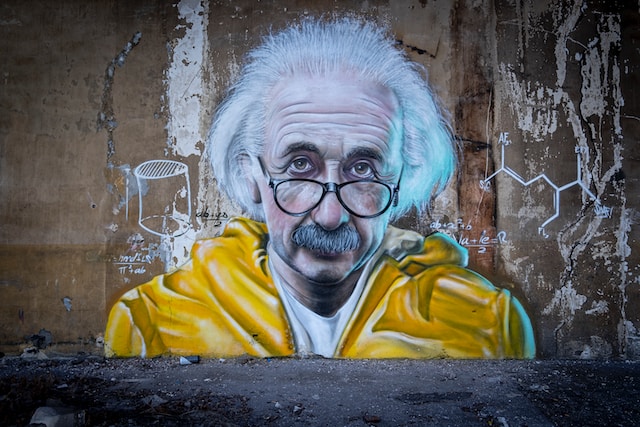Albert Einstein, often referred to as the ‘King of Science’, left an indelible imprint on the world of physics. Born on March 14, 1879, in Ulm, a city in the Kingdom of Württemberg (now part of modern-day Germany), Einstein was the first child of Hermann and Pauline Einstein. He grew up in Munich, where his curiosity for understanding the natural world became evident at an early age. With his journey into the realm of science spurred by a compass given to him when he was sick at age five, Einstein embarked on a lifelong quest to decipher the mysteries of the universe. Despite facing educational hurdles in his early years, he later attended the Polytechnic Institute in Zurich, Switzerland, where he graduated in 1900 as a teacher of physics and mathematics. His work and contributions to the scientific community have since been the bedrock of modern physics, rendering him an enduring symbol of scientific endeavor.
Who Is The King Of Science?
The question of who holds the title of “King of Science” is often debated among scientific communities and enthusiasts. However, there is one name that consistently rises to the top – Albert Einstein.
Early Years
Born in Germany, Einstein was a brilliant physicist and mathematician whose theories revolutionized our understanding of space, time, energy, and matter. He was the first child born to Hermann and Pauline Einstein in the city of Ulm on March 14, 1879. Despite growing up in a middle-class Jewish family, Einstein showed an early aptitude for science and mathematics.
As a child, Einstein had a curious mind and was always asking questions about the world around him. His passion for science was further fueled when he received a compass from his father while he was sick at the age of five. This simple gift sparked his interest in understanding the inner workings of nature and set him on a path towards becoming one of the most influential scientists in history.
Education and Qualifications
Einstein’s formal education began at the Cannstatt Latin School, where he excelled in mathematics and physics. However, due to conflicts with the school’s rigid disciplinary structure, Einstein left and moved to Switzerland with his family in 1895.
In 1896, at the age of seventeen, Einstein applied to the renowned Swiss Federal Polytechnic School (commonly known as ETH Zurich). Despite not having completed high school, he managed to pass the entrance exam and was admitted. At ETH Zurich, Einstein studied physics and mathematics, graduating in 1900 with a diploma to teach these subjects.
He continued his education at the University of Zurich, where he obtained his doctorate in 1905 for his groundbreaking research on the photoelectric effect. This work would later earn him the Nobel Prize in Physics in 1921.
Contributions to Science
Einstein’s contributions to science are numerous and have greatly impacted our understanding of the universe. From his theory of relativity to his famous equation E=mc², Einstein’s work has influenced fields such as quantum mechanics, nuclear physics, and astronomy.
His findings also paved the way for technologies like atomic energy, laser technology, and GPS systems. Einstein’s theories continue to shape modern scientific research and inspire future generations of scientists.
Schools & Universities Dedicated To The King Of Science
Einstein’s work and legacy have been recognized globally, leading to the establishment of schools and universities dedicated to the study of his theories. Some notable institutions include:
- The Hebrew University of Jerusalem’s Einstein Institute of Mathematics
- The Albert Einstein Science Park in Ulm, Germany
- The Einstein Academy Foundation in Prague, Czech Republic
- The Einstein Forum in Potsdam, Germany
- The Einstein Papers Project at the California Institute of Technology (Caltech)
These institutions serve as reminders of Einstein’s enduring impact on the scientific community and continue to honor his legacy by promoting scientific education and research.
Other Works
Einstein worked alongside some American organizations such as the National Association for the Advancement of Colored People. He was passionate about promoting equality and using science to better society.
He also wrote various publications, including “Relativity: The Special and General Theory” (1916), “The Evolution of Physics” (1938), and “The World As I See It” (1949). These writings further showcase Einstein’s brilliance and ability to communicate complex scientific concepts to a broader audience.
Corporations such as Einstein Healthcare Network and Einstein Healthcare Network also bear the name of this scientific luminary, further demonstrating his enduring influence on various aspects of society.
Conclusion
Although many scientists have made significant contributions to their fields, Albert Einstein remains unrivaled in his impact on modern science. From his humble beginnings in Germany to his groundbreaking theories and global recognition, he has rightfully earned the title of “King of Science.” His legacy continues to inspire and shape our understanding of the universe as we know it. So, when asked, “Who is the king of science?” – it’s clear that Albert Einstein stands above all others. As Einstein himself famously said, “The important thing is not to stop questioning. Curiosity has its own reason for existing.” And indeed, his curiosity and dedication to scientific inquiry have forever cemented his place in history as the greatest of all scientists – the King of Science. So let us continue to question, explore, and discover in honor of this remarkable man’s legacy. As he once said, “The important thing is not to stop questioning.” And with that, the search for knowledge and understanding will continue, guided by the king of science – Albert Einstein. Truly, a man who forever changed our world and beyond.
